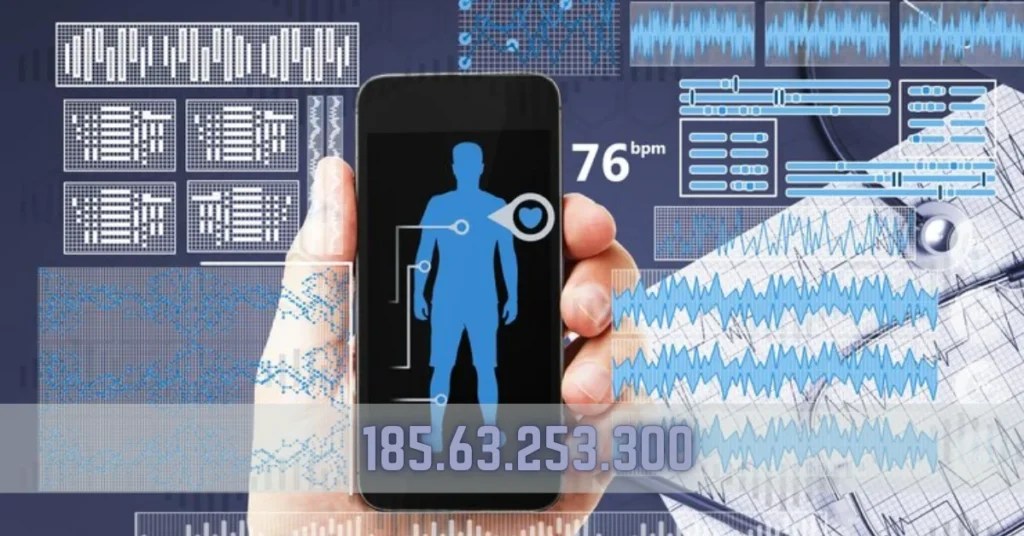Introduction
In today’s interconnected world, every click, message, and data packet travels through the vast web of the internet, often relying on an unassuming but vital element: the IP address. One such address, 185.63.253.300, may seem random, but its presence online speaks volumes about the way digital communication works. In this article, we’ll explore how an IP address like 185.63.253.300 can be traced, what its significance is in the digital realm, and what this means for privacy, cybersecurity, and online behavior.
What is an IP Address?
The Role of IP Addresses in Digital Communication
An IP address (Internet Protocol address) is essentially the digital identity of a device on a network. Think of it as your online street address: it ensures that data packets find their way to the correct destination. Whenever you visit a website, send an email, or interact with any digital platform, an IP address is involved in ensuring that the data reaches the correct endpoint.
Understanding Public vs. Private IP Addresses
IP addresses come in two main types: public and private. Public IPs are globally unique, allowing devices across the world to communicate with one another, while private IPs are used within closed networks, such as home Wi-Fi or local area networks (LANs). IP address 185.63.253.300 falls under the category of public IPs, meaning it’s visible and traceable on the internet.
The Importance of IP Address 185.63.253.300
Decoding the Significance of This Specific IP Address
While the IP address 185.63.253.300 might appear to be just a string of numbers, its structure is a reflection of how the internet’s addressing system is designed. IP addresses are split into four sections, separated by dots, with each section representing a part of the network. The uniqueness of this particular IP address suggests it’s associated with a specific geographical location or service.
What Makes 185.63.253.300 Stand Out in the Digital World?
IP addresses like 185.63.253.300 often catch the eye of security researchers, businesses, or even hackers who attempt to understand its behavior, track its location, or analyze its role in the digital ecosystem. This particular address might be tied to a specific network or company, influencing how data flows within its digital domain.
How Do IP Addresses Work?
The Mechanics Behind an IP Address
When you send a request to a website, your device’s IP address is used to locate the server hosting that site. The data you requested, such as a webpage, is then sent back to your device via the same IP address. In a way, the internet’s entire data transmission process relies on IP addresses to function.
How Data Travels Through the Internet Using IP Addresses
Imagine sending a letter through the postal service. You write an address on the envelope, and the letter is delivered to that specific address. Similarly, when you request data from a website, it’s sent through various routers and servers, all of which use IP addresses to route the data correctly, ensuring it reaches your device.
Can You Trace an IP Address?
The Power of IP Address Geolocation
Yes, it’s possible to trace an IP address to a physical location, though the precision varies. Tools like IP geolocation services can give an estimate of where an IP address is located geographically. While this can sometimes pinpoint the city or region, it might not always be accurate down to the street level.
Tracking IPs: Legal and Ethical Considerations
While tracking an IP address can be useful for security and troubleshooting purposes, it’s important to recognize the legal and ethical concerns surrounding it. Tracking someone’s IP without consent, particularly for malicious reasons, can be a violation of privacy laws in many jurisdictions.
Uncovering the Digital Footprint of 185.63.253.300
Tracing the Source and Destination
Security experts and businesses often use tools to trace the source of an IP address to detect unusual activity, like hacking attempts, or even gather intelligence on traffic behavior. If 185.63.253.300 is linked to malicious activity, tracing its source can help mitigate further damage.
How Do Security Experts Use IP Trace Tools?
To track the origin of an IP address, experts use IP trace tools that access databases mapping IP addresses to specific locations or organizations. This can help them pinpoint where a particular request or attack originated from.
The Role of Cybersecurity in IP Address Tracking
How IP Tracking Plays a Key Role in Cybersecurity
In the world of cybersecurity, tracing IP addresses is a crucial technique for identifying threats. When a hacker uses an IP address to infiltrate a network, cybersecurity teams can quickly use tools to trace the address and block access, preventing further malicious activity.
Preventing Malicious Activity with IP Address Monitoring
Many organizations monitor incoming and outgoing traffic for suspicious IP addresses. By detecting unusual patterns—such as a large number of failed login attempts from the same IP address—they can take preventive actions, such as blocking the address or requiring additional verification.
185.63.253.300 and Privacy Concerns
How Tracing IPs Affects Online Privacy
While IP address tracking has its benefits, it also raises privacy concerns. By knowing an IP address, it’s possible to gather information about a person’s internet activity, which may lead to unwanted surveillance or breaches of privacy.
Should You Be Concerned About IP Tracking?
If you’re browsing the web using a regular internet connection, chances are your IP address is being tracked in some form, whether by websites for analytics or by advertisers targeting you. While this is largely non-invasive, those seeking complete anonymity might consider using tools like VPNs to hide their real IP addresses.
Real-World Applications of IP Address Tracking
How Businesses Leverage IP Data
Businesses often use IP address tracking to enhance customer experience. For instance, an e-commerce site may use an IP address to display relevant regional products or adjust shipping options based on location.
IP Tracing in Digital Forensics
In digital forensics, investigators use IP address tracking to uncover the digital footprints of cybercriminals. By tracing an IP back to its source, investigators can gather vital evidence in criminal cases involving fraud, identity theft, or cyberbullying.
Conclusion: Understanding the Digital Pulse Through IP Address 185.63.253.300
Understanding the significance of 185.63.253.300 is just one piece of the puzzle in how the internet works. Whether you’re tracking it for security purposes or simply exploring how digital communication takes place, tracing an IP address reveals much about the way data flows through the internet. As we continue to connect more devices and use the web in increasingly sophisticated ways, knowing how to trace, interpret, and secure IP addresses will be more important than ever.






